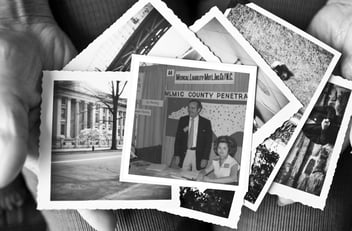Standing Ground Against a Bully—What to Do When Plaintiff’s Attorneys Use Scare Tactics Pre-Trial

Kristi Wright explores various scare tactics used by plaintiff's attorneys and explains how doctors and their defense team can remain united to successfully defend their case.
“United we stand, divided we fall.”
You’ve probably heard this phrase in one form or another, as the meaning behind this motto can be applied in so many situations. The key to success is collaboration and opposing forces can often try to cause a divide among the other side to create an advantage. In recent times, we’ve been seeing this tactic used with increasing frequency in the courtroom.
In malpractice cases, many plaintiffs’ attorneys are attempting to divide and conquer those on the defense side by driving a wedge between healthcare providers and insurance carriers, or even physicians and providers from within the same practice. In the face of these tactics, it is important for the defense to remain united in the defense of good medicine. Put simply, the defense cannot falter in the face of scare tactics and cannot fall victim to such an approach.
There’s a particular instance that comes to mind as I write this. In one of our cases, our insured physician truly believed in her care and was committed to defending herself through trial. We had all assessed the case as defensible. However, as the trial approached, the plaintiff’s attorney started a letter-writing campaign to intimidate the defense. He wrote multiple letters to our defense counsel, threatening bad faith on the part of the attorney and insurance carrier. These letters were sent several times a week, continuing for months. Each letter came with strong threats indicating that we, on the defense side, would lose our jobs, be exposed to litigation and that our provider would lose her home and personal assets. We must recognize these sorts of tactics for what they are—a form of bullying.
How do we combat these tactics? We need to continually have open discussions with all parties on the defense side to ensure that we are all aware of what’s going on and the intent behind these actions. We need to continue to assess the strengths and weaknesses of our case fairly and honestly, and if we determine it’s a case to resolve, then we will attempt to resolve it fairly. If it’s a case to defend, we need to remain united in defending good medicine.
As the trial gets closer, nerves start setting in and it’s understandable that a physician can become concerned about the risks of trial. It’s important to remember that unless the case has changed, this is the same case that we had all planned to defend. The medicine has not changed, the damages have not changed, and the venue has not changed, so why should the assessment and plan for the case change just because we are being bullied?
Most physicians will not have to deal with this sort of plaintiff’s attorney. Most are simply doing their job and representing their client. But if you are faced with a particularly aggressive attorney, keep in mind that, while these tactics are utilized, good medicine is defensible. Jurors do not hold you to a standard of perfection, and nor does the law—and no amount of bullying will change that.
The opinions and views expressed in blog posts on Curi’s site belong to and are solely those of the individual author, and do not necessarily reflect those of Curi Advisory or Curi Advisory’s parent or affiliated companies or their members, insureds, clients, customers, or partners.
About the Author










Comments